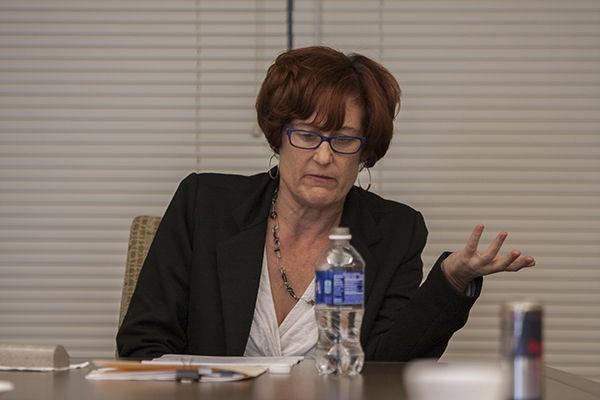The teachings of a 1950s French philosopher still hold value in the current environment of Israel, according to a discussion Tuesday evening.
Guest speaker Oona Eisenstadt, a Fred Krinsky professor of Jewish studies and an associate professor of religious studies at Pomona College, spoke with students about Emmanuel Levinas to highlight the current perspective on the state of Israel.
Eisenstadt said she did her best to present an unbiased approach to Levinas’s philosophies, maintaining his importance within the field of philosophy while discussing his background within Jewish studies.
The discussion, called “Levinas’s Two Israels,” also revolved around the relevance of Levinas’s perspective in present-day education.
Ted George, associate professor and interim head in the department of philosophy, said the discussion referenced the current state of both Europe and Israel within the realm of philosophical debate.
“[The discussion] was a very sophisticated treatment of how a certain philosopher thinks about what Israel and Europe are and that put into relief the way in which that thinker is part of our current debate going on in Europe and philosophy,” George said.
Eisenstadt said there are certain scholars within philosophy that are commonly taught in the public education system, including Aristotle, because students are responsive to their teachings. She said Levinas is included as one of the few great thinkers that should be recognized amongst philosophers, as well as the general student body.
George said Eisenstadt’s elaboration on Levinas’s philosophy is directly applicable within his classrooms.
“I think that I learned about how to highlight certain aspects of Levinas thought and share that with my students where I otherwise wouldn’t be able to,” George said.
Unfortunately, Levinas is commonly hidden amongst other important figures and philosophers within curriculums and the field of general philosophy itself.
Claire Katz, a philosophy professor, said she regards Levinas as an important figure to be taught within classrooms, but that he is often overlooked in curriculums due to his association with Judaism.
“He’s definitely a figure that sits in the margins,” Katz said.
One reason that this may be is the way Judaism is viewed in comparison to Christianity, Katz said.
“Because Judaism is viewed as particular and Christianity is viewed as universal, so even if it’s not said, there is an assumption that the way in which Christianity is presented, anyone can access it, whereas Judaism has always been very particular and not able to be accessed in a particular way for various reasons,” Katz said.
Professor connects 50s French philosopher to modern-day Israel
February 17, 2015

Shelby Knowles — THE BATTALION
Oona Eisenstadt
Donate to The Battalion
Your donation will support the student journalists of Texas A&M University - College Station. Your contribution will allow us to purchase equipment and cover our annual website hosting costs.




















